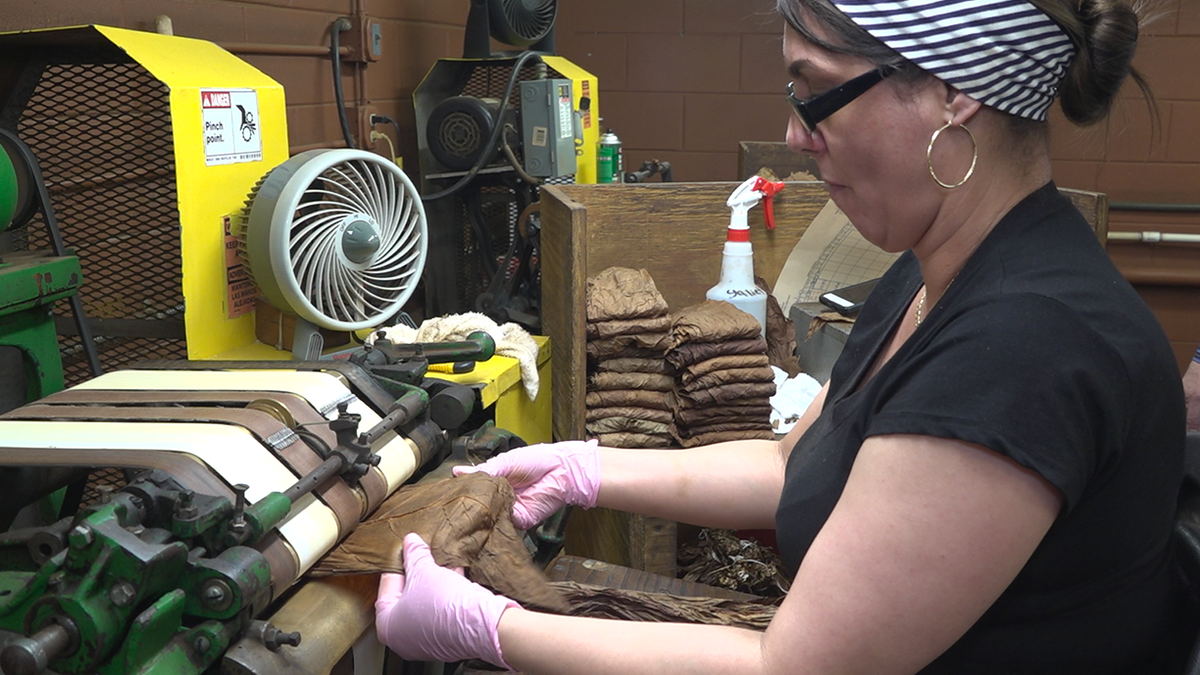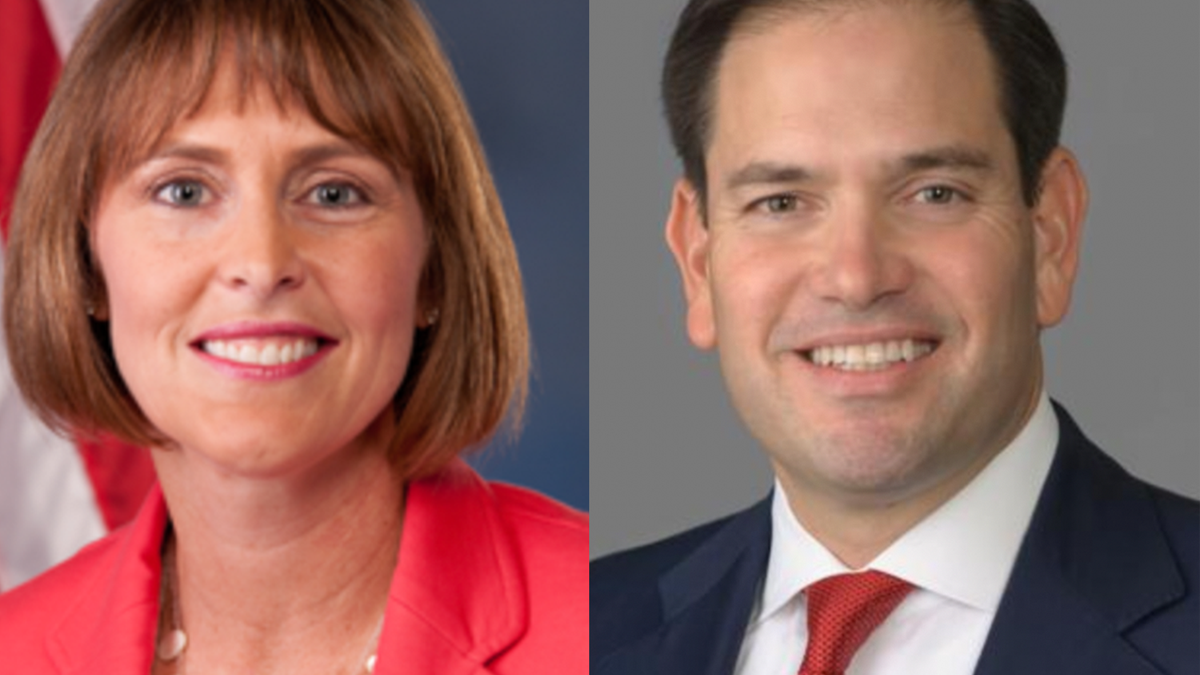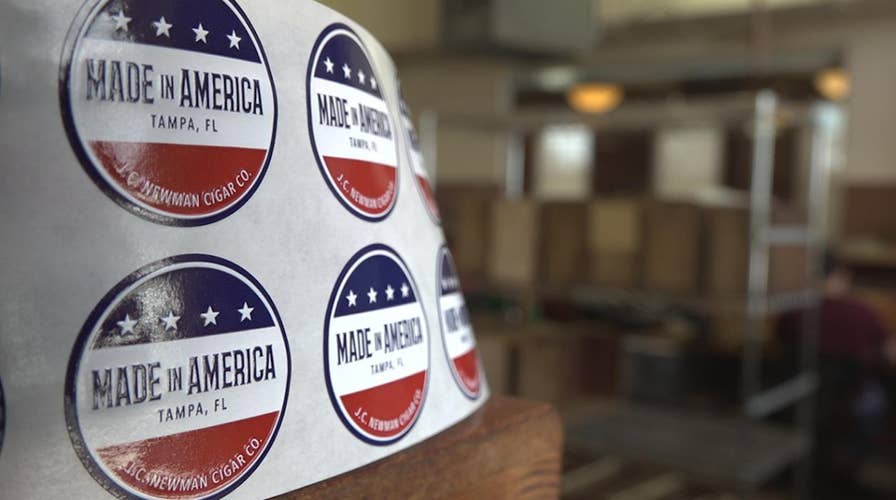YBOR CITY, Fla. – Cigars helped define this neighborhood in Tampa that, in its prime almost a century ago, was known as the “Cigar Capital of the World.” Home to over 100 factories, the city produced millions of cigars to ship worldwide.
Today, family-owned J.C. Newman Cigar Company is the sole survivor and the oldest premium cigar maker in the U.S. But its fourth-generation owners say their future is now threatened because of regulations from the Food and Drug Administration (FDA) that they are fighting to overturn. The cigar owners are gaining support among prominent lawmakers, to the chagrin of health advocates who claim the industry is putting lives at risk.
“Our company has survived two world wars, the Great Depression, the Cuban Embargo, but proposed FDA regulations would be the nail on the coffin for our factory and 135 employees,” said owner and president of the 124-year-old company, Eric Newman. “These are American jobs…this is all they know…this is all they have.”
Cigars have long been a cultural cornerstone in places like Cuba and the Dominical Republic and, at one point, was a status symbol in the U.S., popular among movers and shakers. But health concerns and tightened regulations have strangled the industry. Owners say the FDA’s well-meaning effort to curb tobacco use by minors became a one-size-fits-all approach, enforcing the same regulations on cigarettes and vaporizers as they do for handcrafted, premium cigars.
The owners say if the FDA rules are not loosened, their industry will die.
“The FDA regulated the entire cigar industry…we have been the unintended victims of this,” said Bobby Newman, Eric’s brother and vice president of the company.
In 2009, Congress gave the FDA the power to regulate the tobacco industry. Prior to the change, new products flowed freely from cigarmakers to store shelves. The Newmans said what happened next wasn’t part of the plan.
In May 2016, the FDA expanded oversight of all tobacco products, including premium cigars, e-cigarettes and other previously unregulated tobacco products.
“This is America…it’s supposed to be of the people by the people for the people, not screw the people…We've been screaming and shouting from the rooftops that premium cigars are different than other tobacco products,” Eric Newman said.
One regulation calls for manufacturers to cover 30 percent of their packaging with a health risk label, something the brothers say would destroy one of the main reasons people buy cigars -- for the specialty boxes. After widespread pushback, the U.S. District Court for the District of Columbia placed a temporary injunction on the rule.
The policy would also prohibit manufacturers from giving out cigars as gifts or samples. They also said the agency imposed new product standard rules that will cost them millions.
“It would cost us $30 million dollars to totally comply with the FDA regulations when we sell $10 million out of this factory,” Eric said. “We need people to stand up for us…”

"We're going to fight like hell to keep our factory from shutting down," said fourth-generation owner Eric Newman, whose factory employs 135 people. (Fox News)
The industry has found support, particularly among Florida's lawmakers. Democratic Tampa Congresswoman Kathy Castor supports changing the regulations. Having worked on the law, she said it was never meant to apply to premium cigars.
“…The rule went beyond congressional intent and ignored the distinction between traditional handcrafted premium cigars and other products that are marketed to children," she said. "It is critical that we ensure Tampa’s premium cigar manufacturing industry continues to thrive!”
But health advocates say an exclusion for the specialty industry shouldn’t happen.
“The [FDA] took a long time before it acted to protect the public both from cigars and from e-cigarettes. And, unfortunately, during that delay we saw a dramatic increase in the use of both e-cigarettes and cigars...because there was no oversight of these products for decades, it became the leading cause of preventable death in the U.S.,” said Erika Sward, national assistant vice president of advocacy for The American Lung Association. “We would not stand for a so-called premium car not having airbags or seatbelts just because it had more steel in it to reinforce it. There should be no exceptions for cigars, either.”
A recently released National Youth Tobacco Survey showed that youth use of e-cigarettes fell for the first time in 2016, after skyrocketing since 2011. But data showed that high school boys smoke cigars at a slightly higher rate than cigarettes.

Florida Democratic Rep. Kathy Castor and Republican Sen. Marco Rubio have both introduced bills to defend the cigar industry from the regulations. (Fox News)
Castor and Florida’s Republican Sen. Marco Rubio have both introduced bills to exempt the cigar industry from the burdensome regulations. Senators from both sides of the aisle have signed on as co-sponsors.
The moves come as the premium industry, once a booming enterprise, has fallen drastically.
In 1895, there were 40,000 federally licensed cigar manufacturers in the United States. Less than 100 remain in business today.
But the Newmans say they won’t go down without a fight.
“We're David against Goliath…if you don't fight for your rights, you don't deserve to win,” said Bobby Newman.
“We’re not going down easy,” added his brother.
The FDA told Fox News it "does not comment on proposed or pending legislation.”
The agency is currently holding a public commenting period through June 17 to receive feedback on the regulatory plan.
The Cigar Association of America, the International Premium Cigar and Pipe Retailers Association and the Cigar Rights of America, have all joined forces to file a lawsuit against the FDA.
“From the beginning of this process, we have stated that this was a clear case of bureaucratic overreach, with the end goal being nothing short of a modern era prohibition. The regulations looming over this industry, in many ways, are more harsh and burdensome than on those products which Congress actually told the agency to regulate. That’s why we are forced into the courts, halls of Congress and other offices and agencies within the president’s administration to tell our story, make the case for relief, so that we can protect this skilled artisan profession -- and the simple enjoyment of a cigar. Honestly, we think there are higher priorities for our government,” said J. Glynn Loope, executive director of Cigar Rights of America.
The Newmans say they hope President Trump delivers on one of his key campaign promises—to crack down on government regulations—so they can stay in business for another 124 years.





